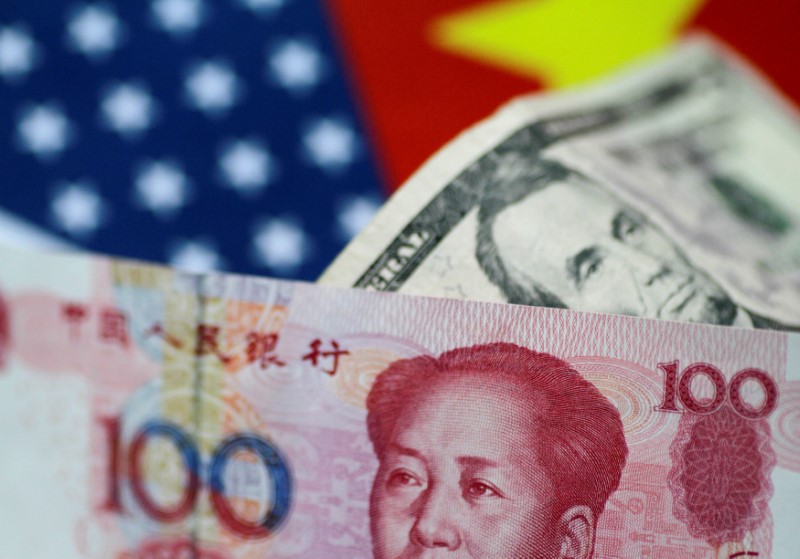By Ambar Warrick
Investing.com -- Most Asian currencies moved little on Thursday as China outlined more spending measures to boost economic growth, although sentiment was constrained by concerns over rising U.S. interest rates, following stronger-than-expected economic data.
The Chinese yuan rose 0.2% as the People’s Bank said it will undertake more measures to shore up economic growth, including increased lending and support for the property market. Separately, China’s state planning body and finance ministry also said they will roll out policies to boost spending and unlock consumer savings that were built up during the COVID-19 pandemic.
The measures helped spur some optimism over a Chinese economic recovery, after recent data showed a middling rebound in inflation and manufacturing activity despite the recent lifting of anti-COVID measures.
A recovery in China also bodes well for broader Asian economies, given the country’s role as a major trading partner for the region. Other China-exposed currencies also advanced slightly on Thursday, with the Singapore dollar and Philippine peso up 0.1% each.
Still, gains in most Asian currencies were limited as overnight data showed U.S. retail sales grew more than expected in January. The reading, coupled with strong inflation data for the month, drummed up concerns over more hawkish measures by the Federal Reserve in the coming months.
The dollar fell against a basket of currencies on Thursday, amid some profit taking after strong gains this week. The dollar index and dollar index futures both fell about 0.2% each in Asian trade.
Signs of strength in U.S. inflation and the labor market saw markets turn uncertain over where interest rates will peak this year, which in turn kept traders wary of risk-driven bets on Asian currencies.
The Australian dollar reversed early losses and rose 0.2% on optimism over China, the country’s largest export destination. Data showed that the country’s labor market unexpectedly shrank in January.
Weakness in employment gives the Reserve Bank of Australia less economic headroom to keep raising interest rates. But the country is also struggling with high inflation, which is expected to weigh on economic growth.
The Japanese yen rose 0.1%, but was nursing steep losses this week amid uncertainty over the path of monetary policy in the country. Traders were awaiting more cues on monetary policy from new Bank of Japan Governor Kazuo Ueda.
